
St. Paul Public Schools ‘Safe Schools Manual’ features ‘Gender Gumby,’ heterosexual, cis, and white privilege checklists
Incidents
St. Paul Public Schools’ Safe Schools Manual features staff development materials such as “Gender Gumby” as well as reflection exercises on one’s heterosexual, cis, and white privileges. It also includes lessons for students such as a “Heterosexual Questionnaire” for middle school students, evaluating how much students oppress others, and “The Pronoun Game.”
The manual is intended to “provide resources and materials that address such issues by combating homophobia in schools, providing support for LGBTQ students, teaching LGBTQ issues in the classroom, and fostering diversity and tolerance among all students and staff.”
One of the resources provided to staff to evaluate their own biases is the “Gumby Gender” graphic.
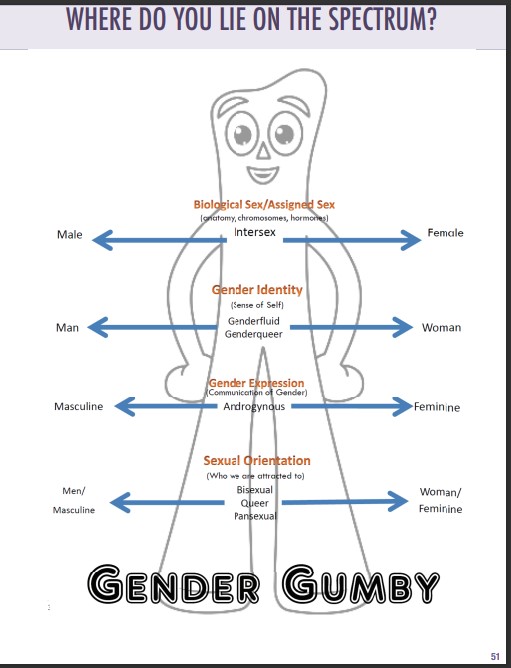
A section focused on how teachers and staff can talk about LGBTQ issues in the classroom includes exercises where the teacher is to evaluate their heterosexual, cis, and/or white privileges. Examples of statements on the lists include “I have the ability to flirt or form a relationship and not fear that my gender assigned at birth may be cause for rejection or attack” and “I can count on my skin color to make me look financially reliable.” A handwritten note at the bottom of the “White Privilege” page states: “It’s HARD to see racism when you’re white.“
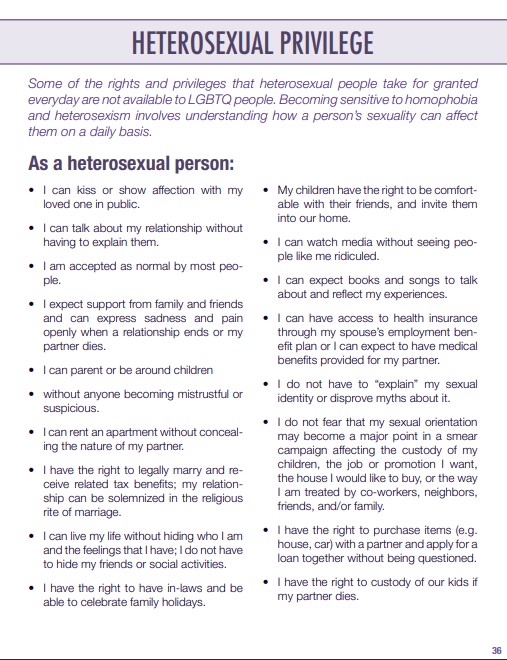
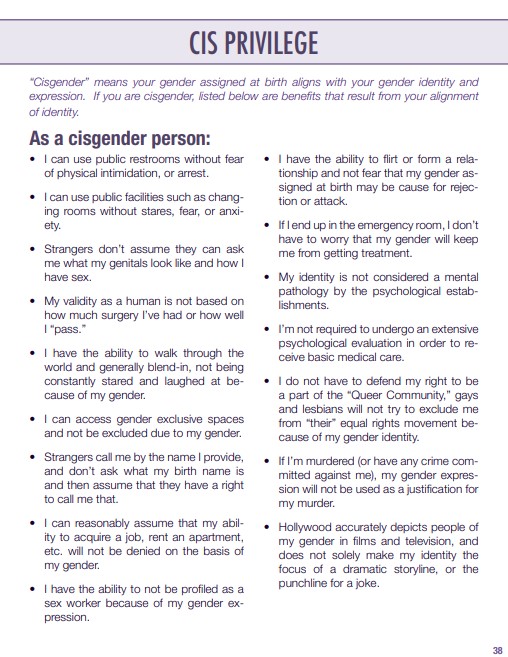
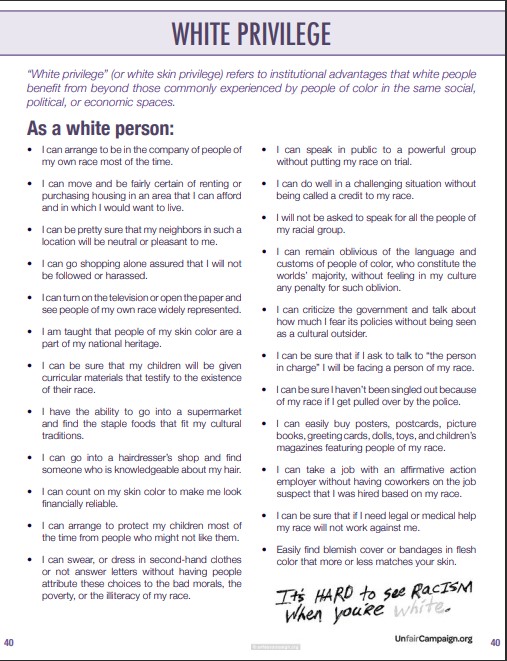
A lesson geared toward middle to high school students titled “Heterosexual Questionnaire Activity” states that it is intended to “help participants understand the heterosexist bias in our culture.” Questions in the activity include, “Could it be that your heterosexuality stems from a neurotic fear of the same gender?” and “A disproportionate majority of child molesters are heterosexual men. Do you consider it safe to expose children to heterosexual males in positions of power?”
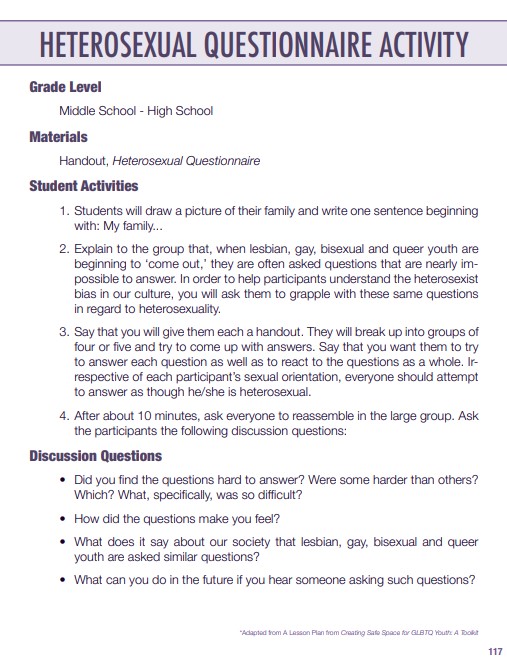
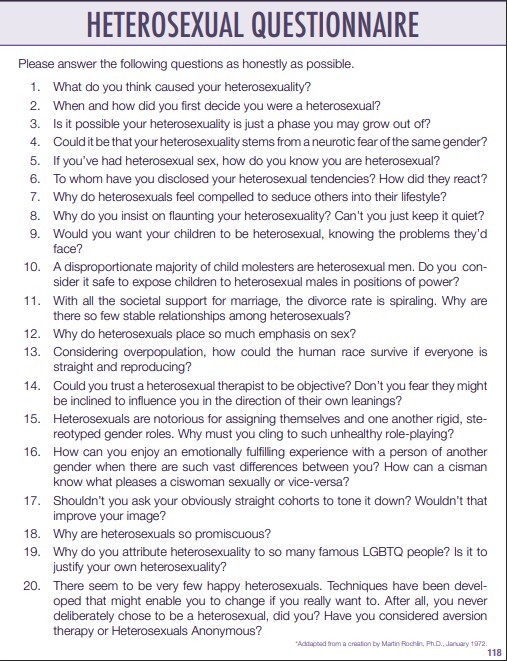
The lesson “Power + Prejudice = Oppression” has students explore their access to power and whether it manifests into oppression or not. Students are to complete a worksheet by marking whether they have access to power based on “identities” such as race, gender, sexual orientation, religion, ability, class, and physical size. Students are to then write down a “promise” on an index card to be collected that states how the student will “help promote change within the next six months.”
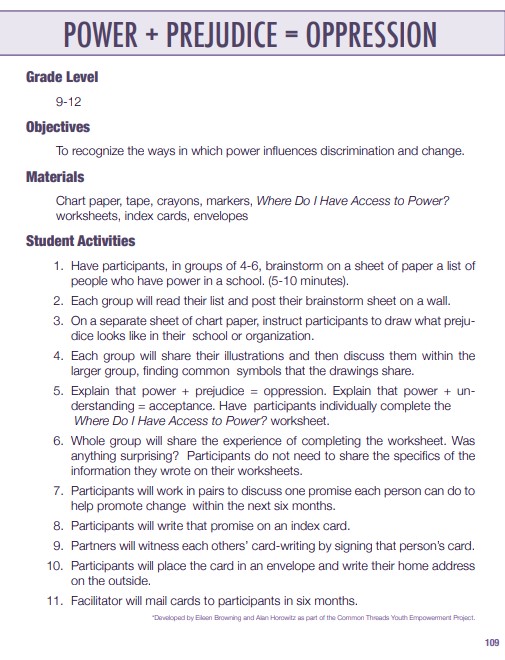
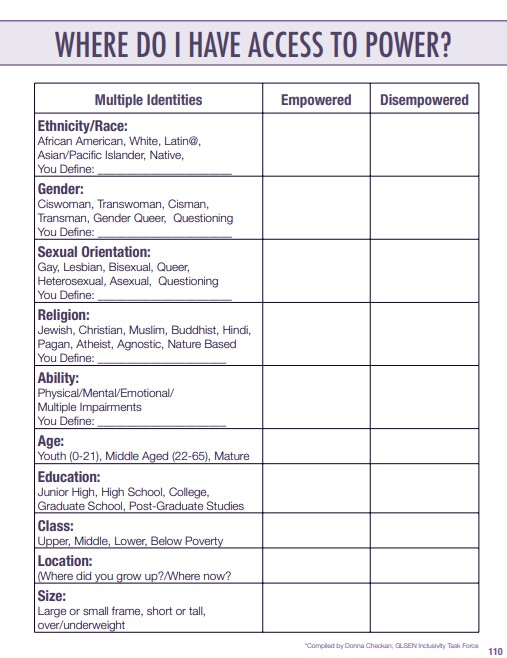
Another lesson titled “The Pronoun Game” has students “examine their own attitudes and beliefs about gender identity” and to examine the “use of pronouns and learn more about gender neutrality.”
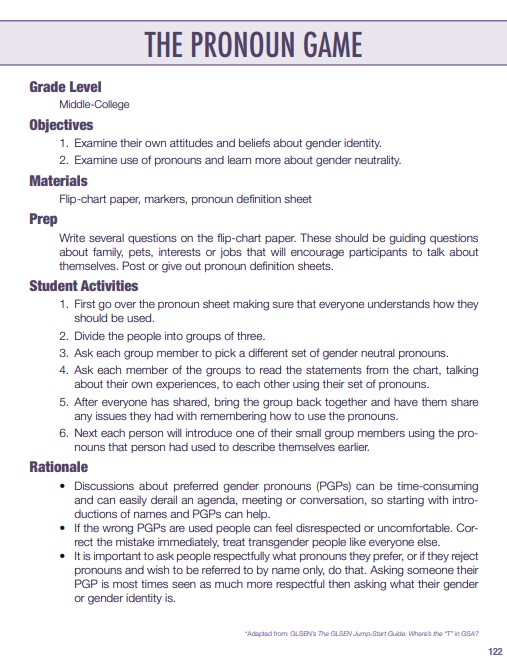
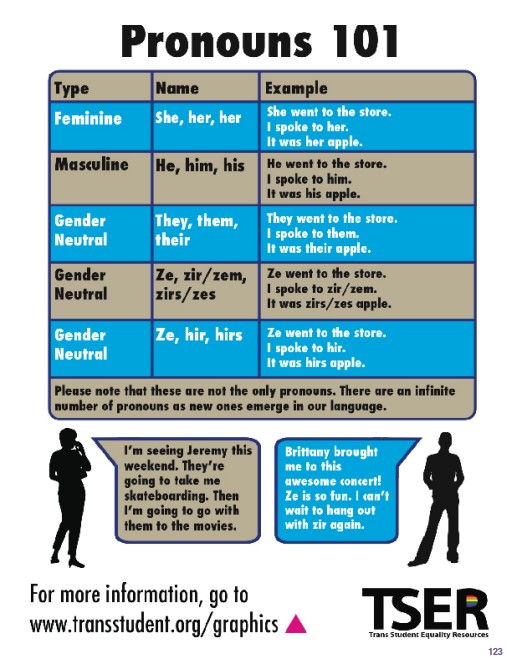
Stay Informed
